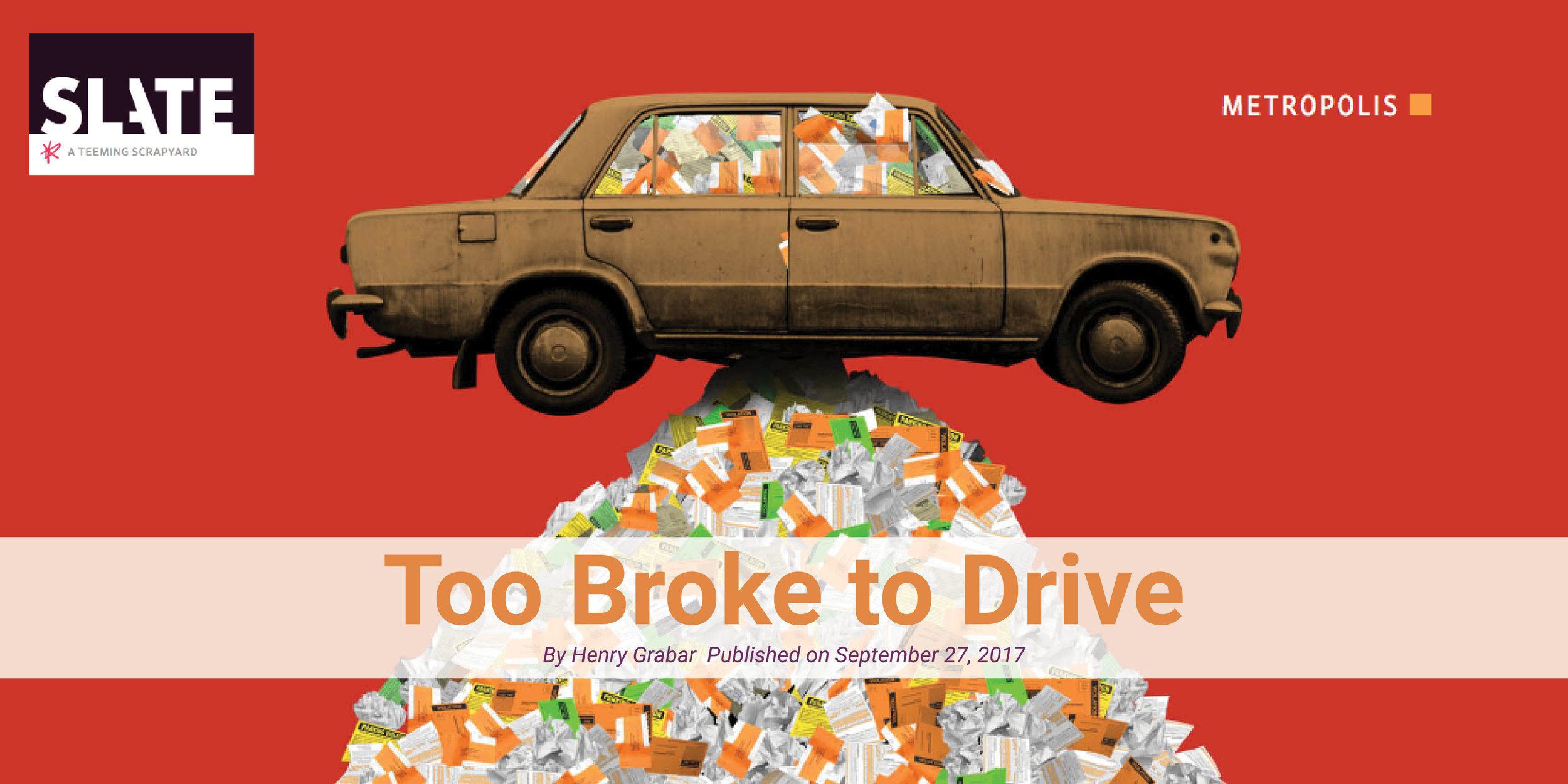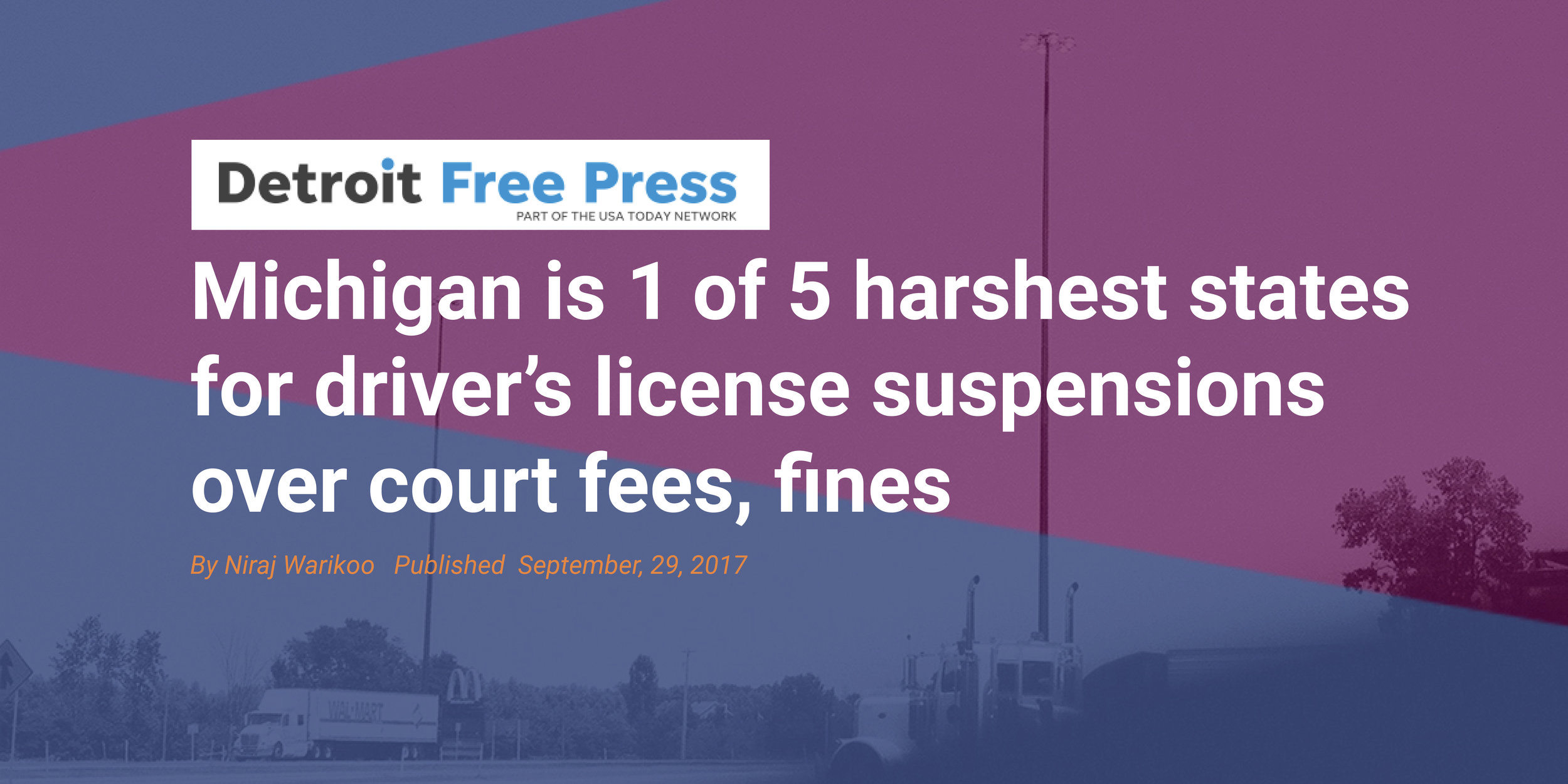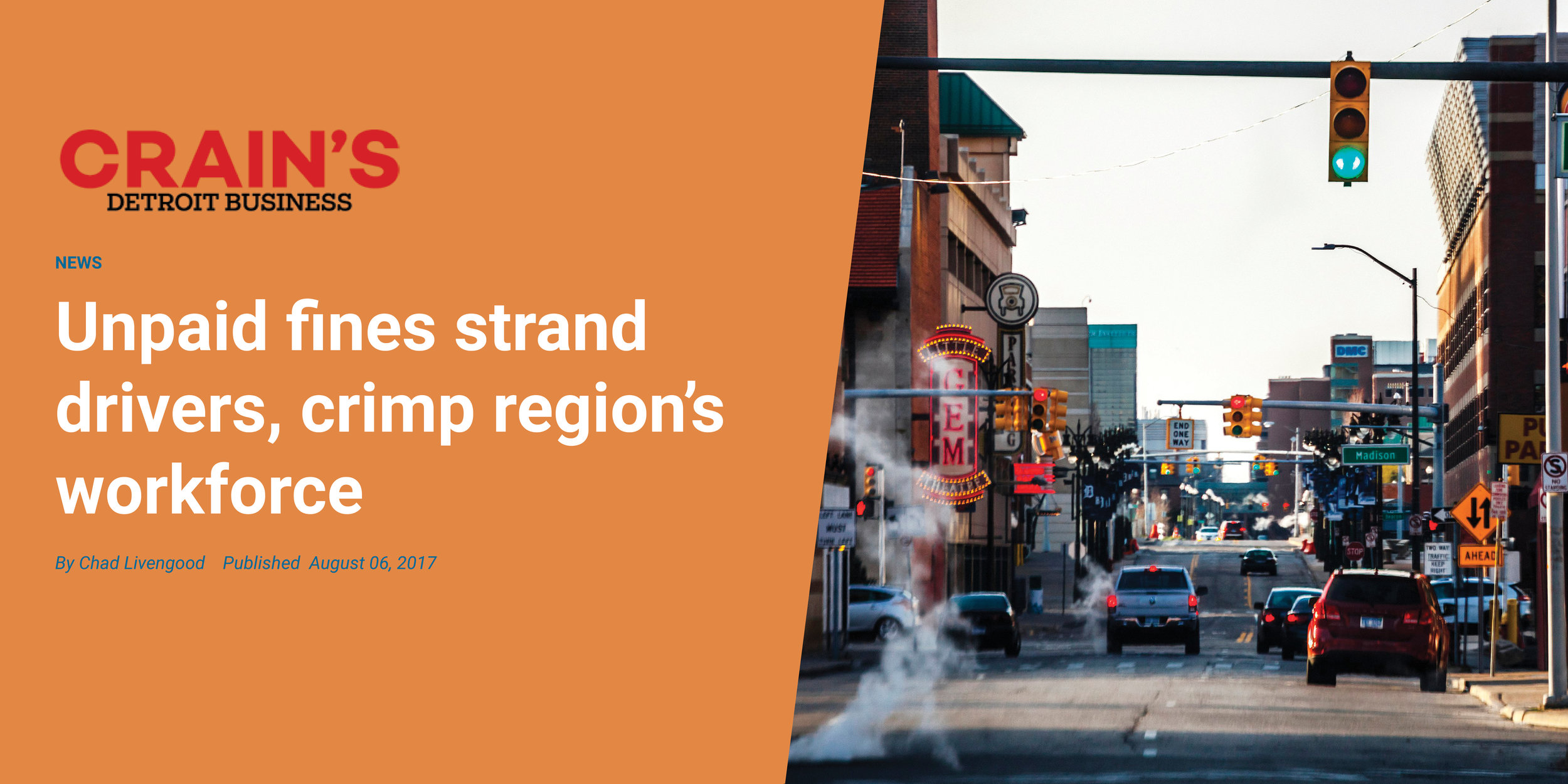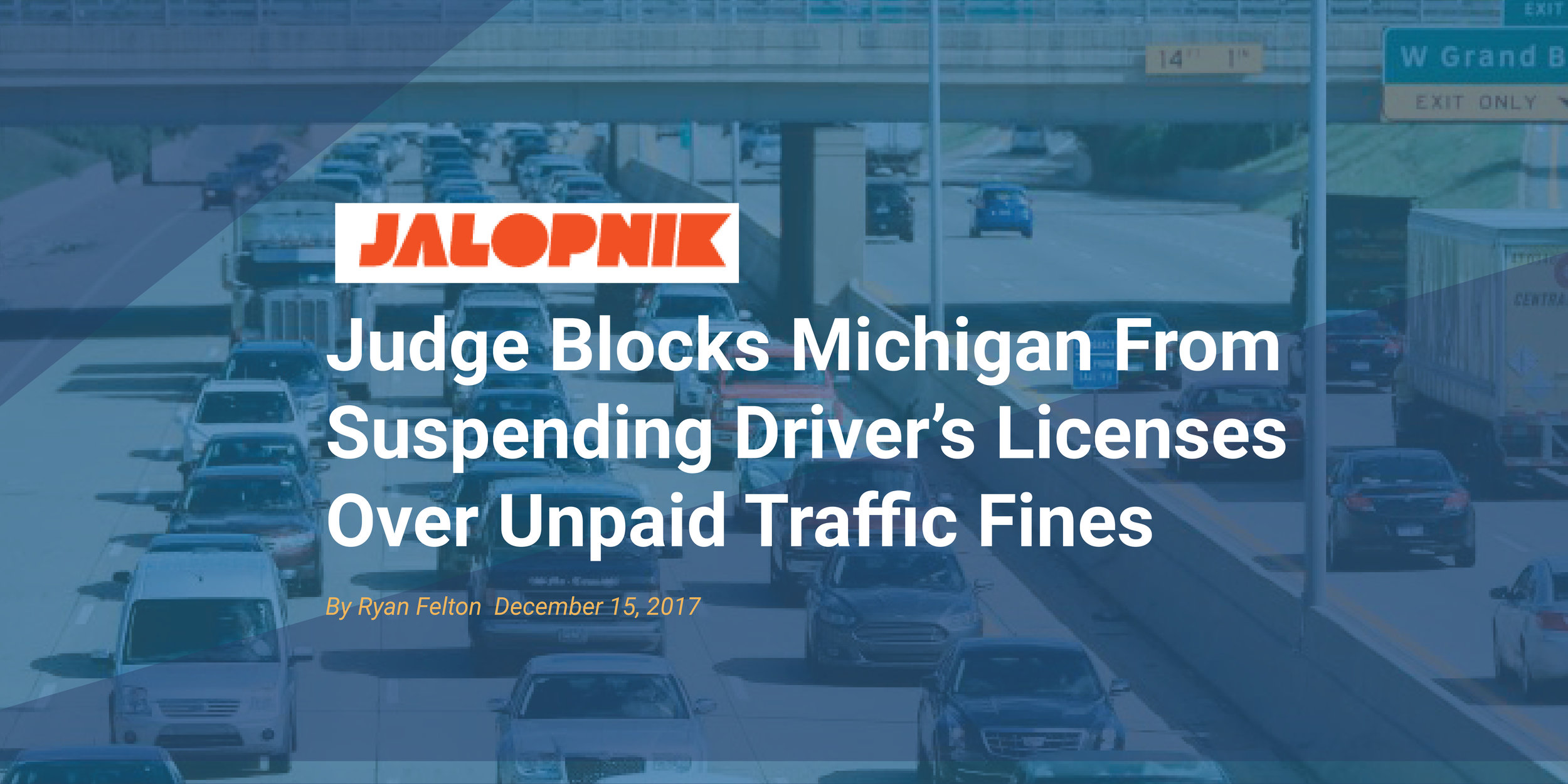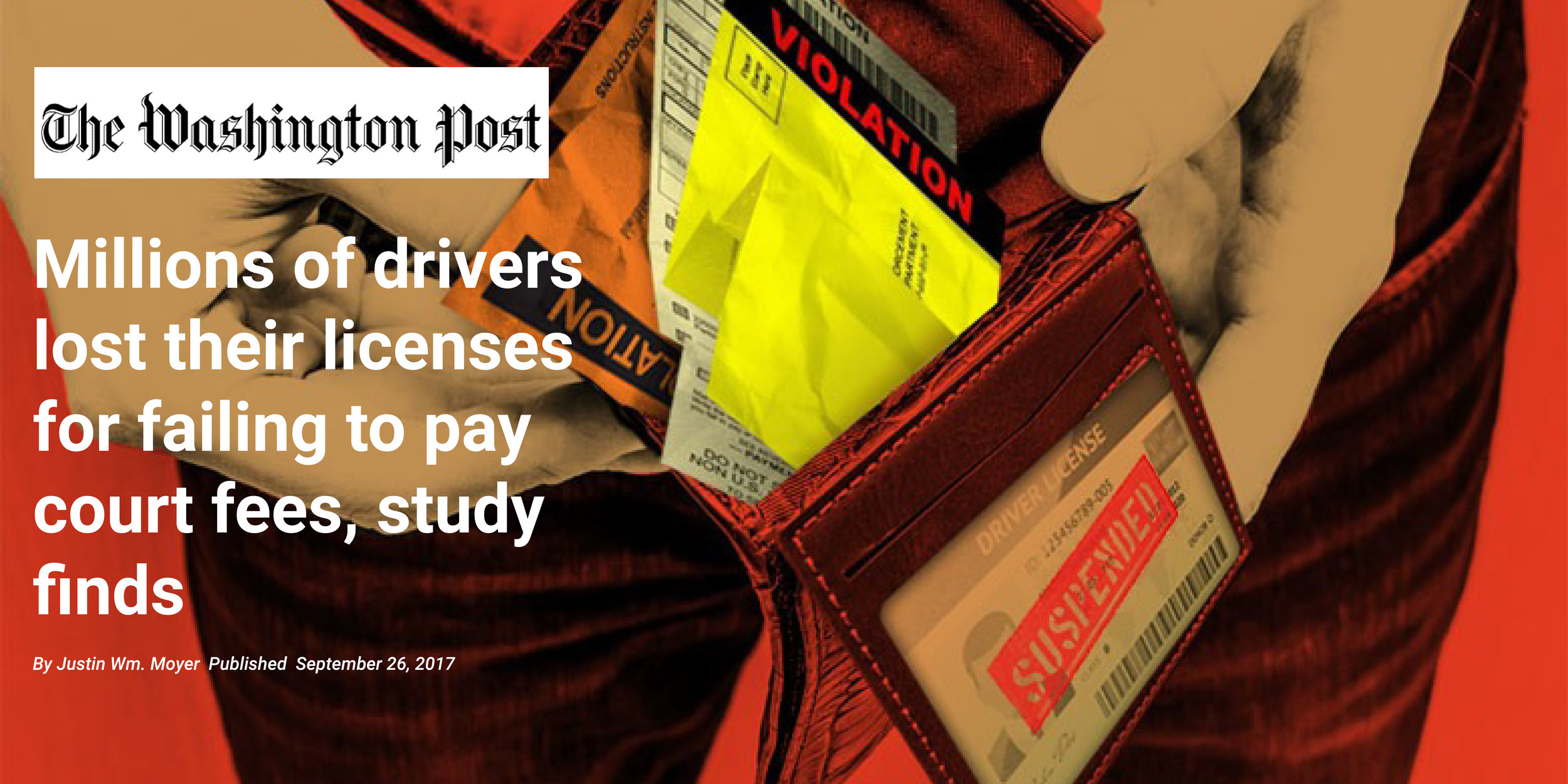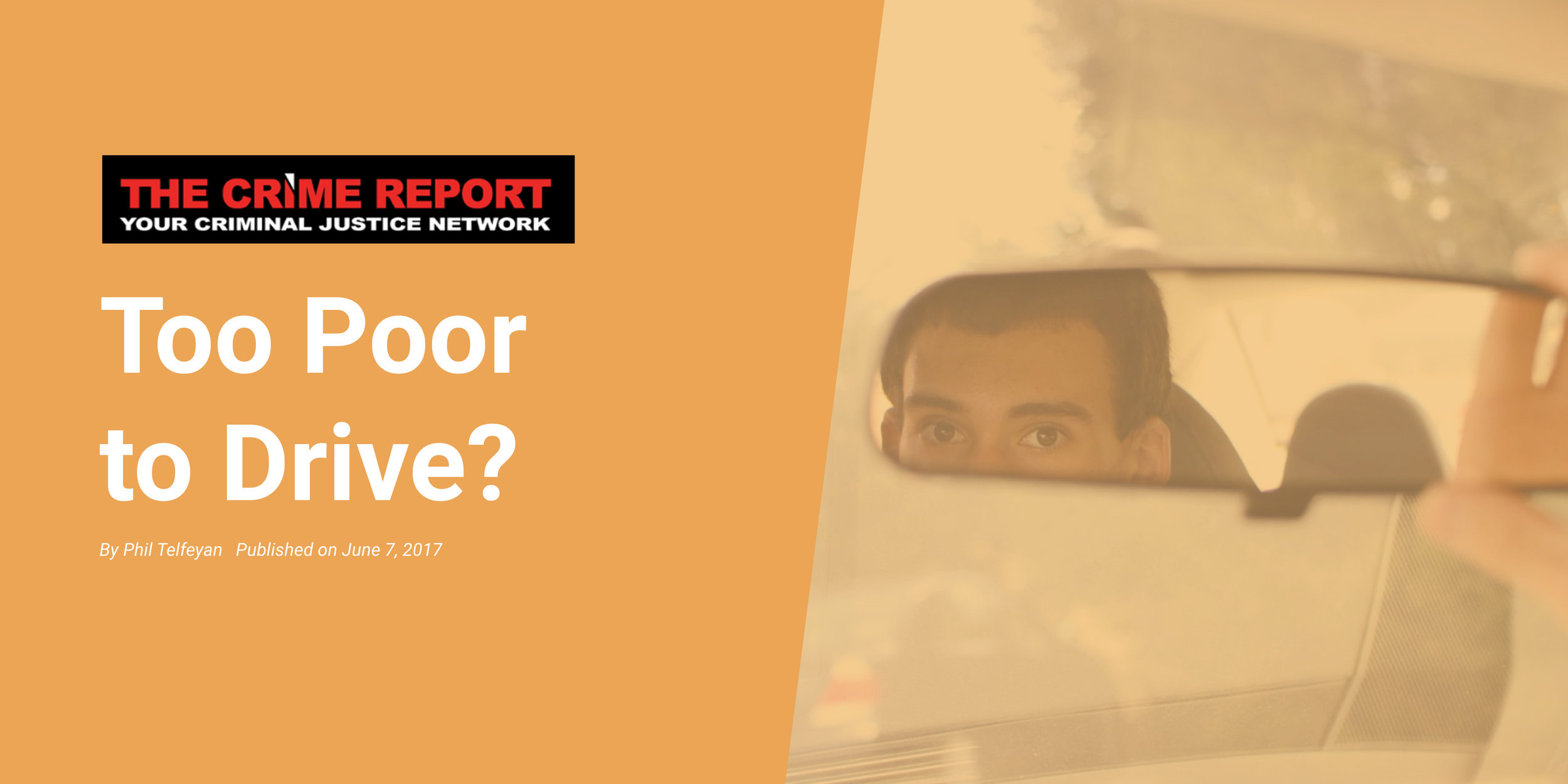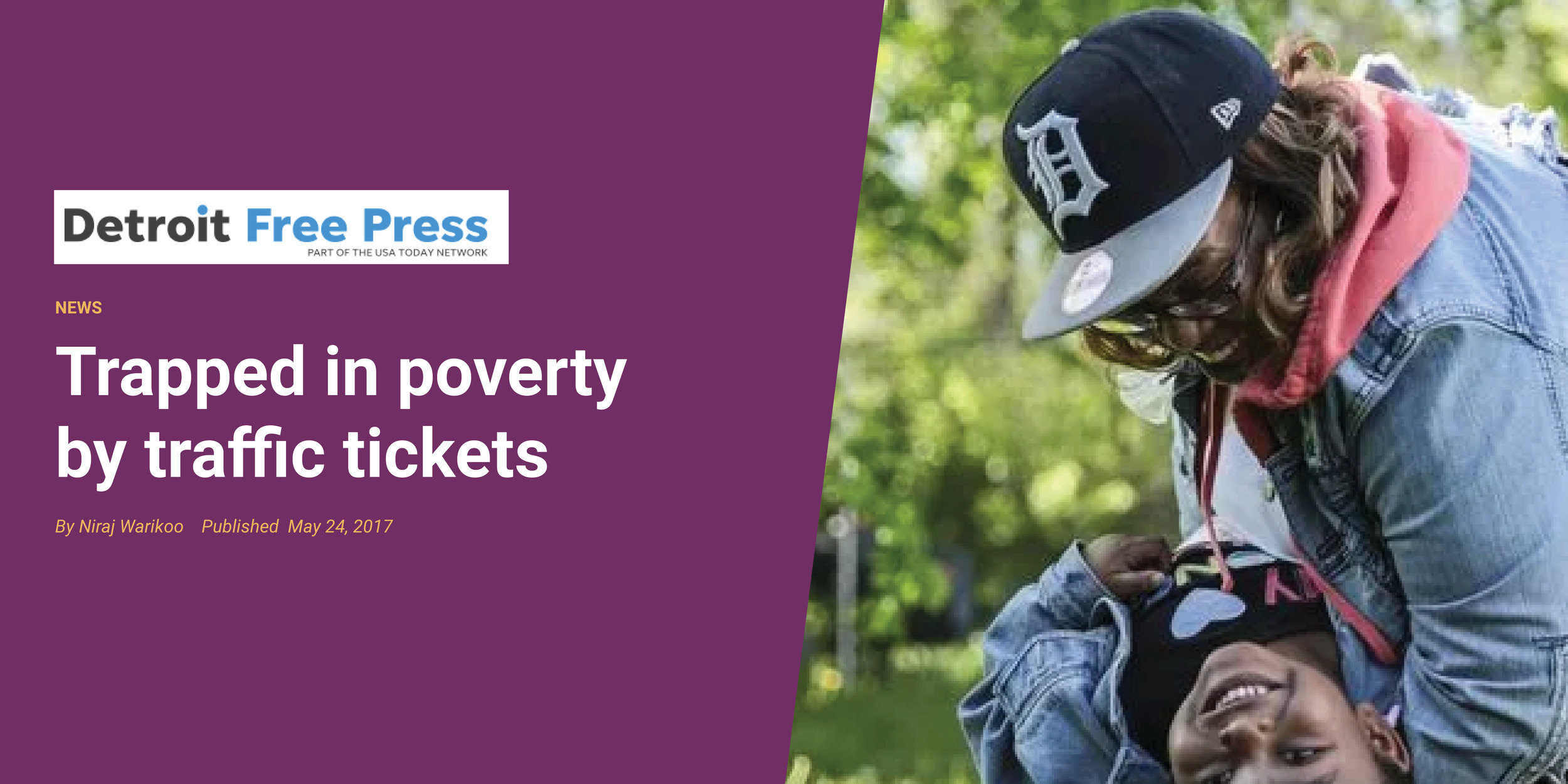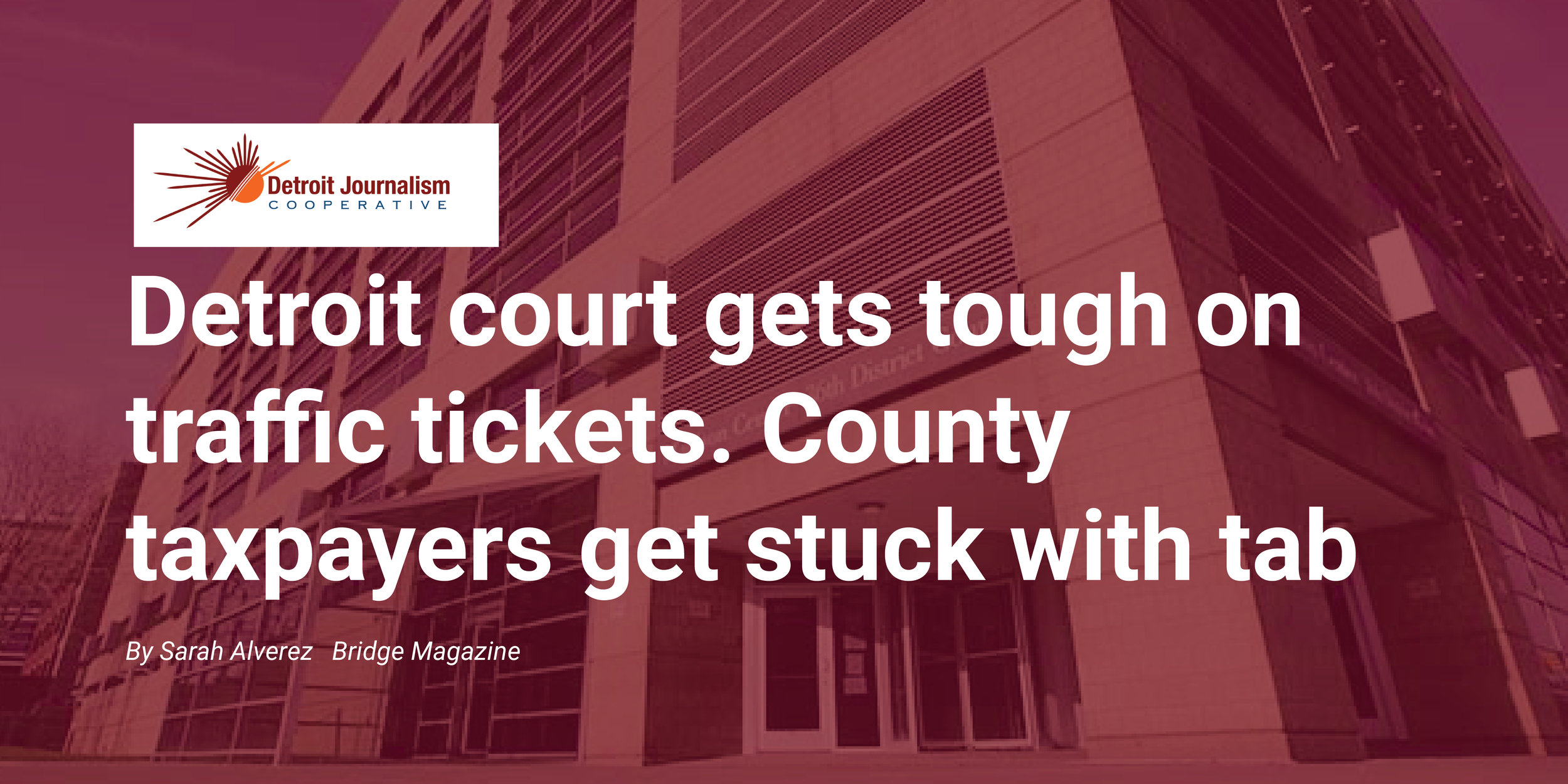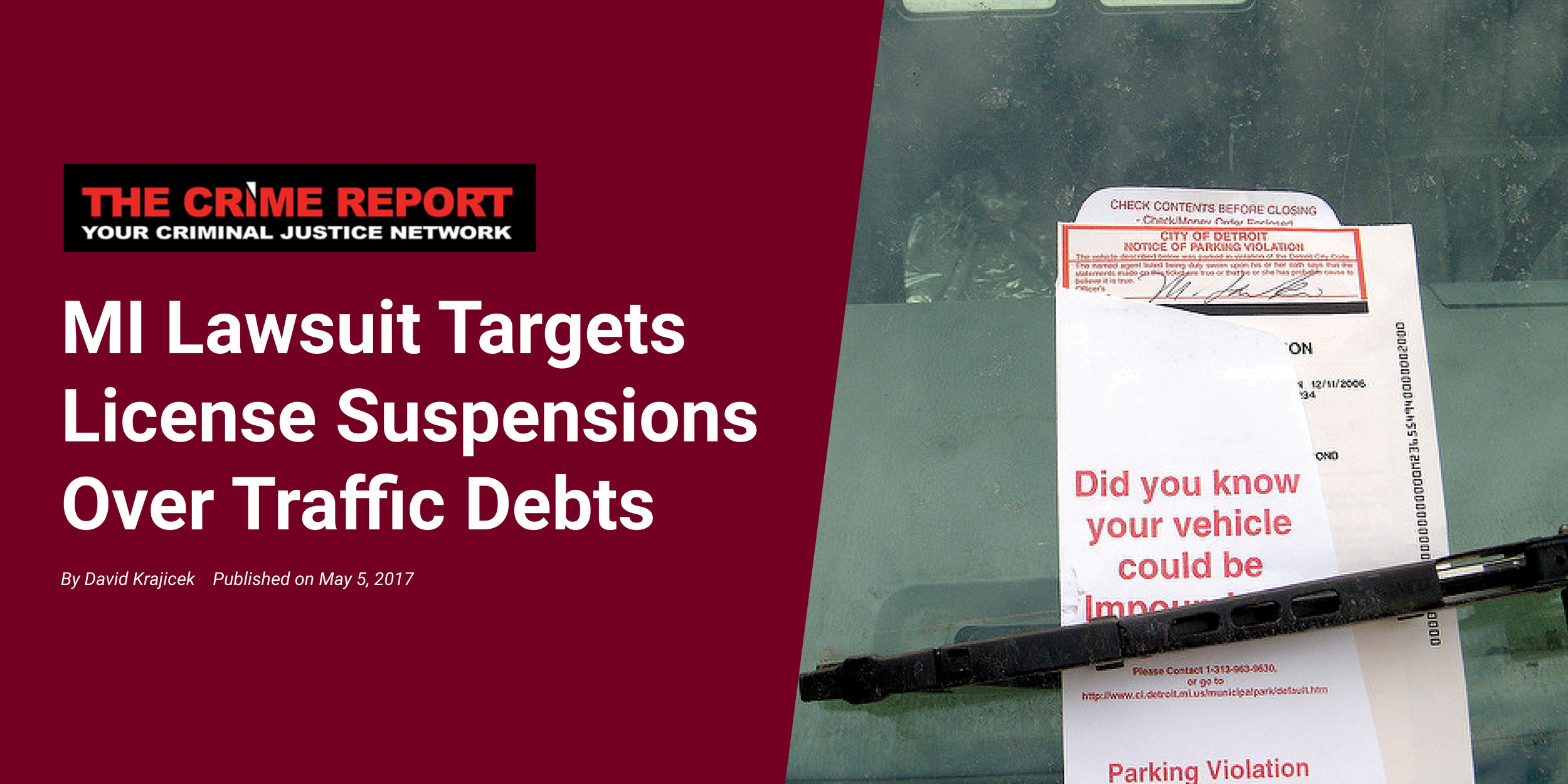Fowler v. Johnson
Equal Justice Under Law successfully settled with the state of Michigan
to ensure that, before the state suspends licenses for unpaid court
debt, individuals are given proper notice and the opportunity to show their inability to pay.
For those unable to pay, an alternative will be arranged, such as community service or workforce development training, and their licenses will no longer be suspended. Without our lawsuit, people in Michigan would continue to be punished for being poor.
Michigan’s automatic suspension of driver’s licenses was designed to coerce payment - but this practice can never accomplish its intended goal. No punishment can increase the likelihood that a person will pay a debt that he or she is unable to pay.
Michigan, like many other states, suspends the driver's license of any person who fails to pay any court-ordered fine, fee, cost, or restitution (including minor traffic tickets) regardless of the reason for nonpayment. That is, the state suspends the licenses even of people who are too poor to pay.
Plaintiffs Adrian Fowler and Kitia Harris are both single mothers of young children living in Detroit, a city with a notoriously inadequate public transportation system. Both were initially cited for minor traffic infractions, and both suffered license suspensions because they were unable to pay their traffic tickets. Ms. Fowler has been forced to turn down higher-paying jobs in the city's suburbs because she cannot get there by bus. Ms. Harris has frequent doctor's appointments for a chronic medical condition, and she is often late or misses appointments entirely because she cannot drive herself there.
We challenged this practice on the grounds that it violates Equal Protection and Due Process rights as well as the fundamental right to intrastate travel (a right recognized in the Sixth Circuit). The law is counterproductive -- attempting to coerce payment by taking away people's ability to drive, thereby impeding their ability to work and earn money -- and therefore fails rational basis review. The law also punishes people simply for being poor, a violation of their substantive due process rights. Automatic suspension also deprives impoverished drivers of a protected property interest, their driver's licenses, without an ability-to-pay hearing, a violation of their procedural due process rights.
Judge Linda V. Parker of the Eastern District of Michigan granted our motion for preliminary injunction on December 14, 2017, reasoning that our procedural due process claim is likely to succeed and ordering the state to stop these unlawful suspensions. The injunction was modified on January 24, 2018, and was stayed pending appeal in the Sixth Circuit. In February 2020, a settlement was reached requiring that individuals in Michigan who cannot pay their court debts will be notified of an inability to pay provision. For those unable to pay, an alternative will be arranged, such as community service or workforce development training, and their licenses will no longer be suspended. Without our lawsuit, people in Michigan would continue to be punished for being poor.
Phil Telfeyan, founder and Executive Director of Equal Justice Under Law, states, “This settlement is not the end of the fight for the people of Michigan, but it’s a great step in the right direction. Punishing people for being unable to pay is unconstitutional and counterproductive. We are pleased that our lawsuit resulted in license suspension policies becoming more fair and equitable.”
case details
Order Granting Our Preliminary Injunction
Order Amending Our Preliminary Injunction
Status: Settled
Date Filed: 05/04/17
Plaintiffs: Adrian Fowler and Kitia Harris, on behalf of proposed class of over 100,000
Defendant: Ruth Johnson, Michigan Secretary of State
Jurisdiction: The U.S. District Court for the Eastern District of Michigan
Partners: Maurice and Jane Sugar Law Center for Economic Justice and COTS, the Coalition on Temporary Shelter
IMPACT
In February 2020, a settlement was reached requiring that individuals in Michigan who cannot pay their court debts will be notified of an inability to pay provision. For those unable to pay, an alternative will be arranged, such as community service or workforce development training, and their licenses will no longer be suspended. Without our lawsuit, people in Michigan would continue to be punished for being poor.

